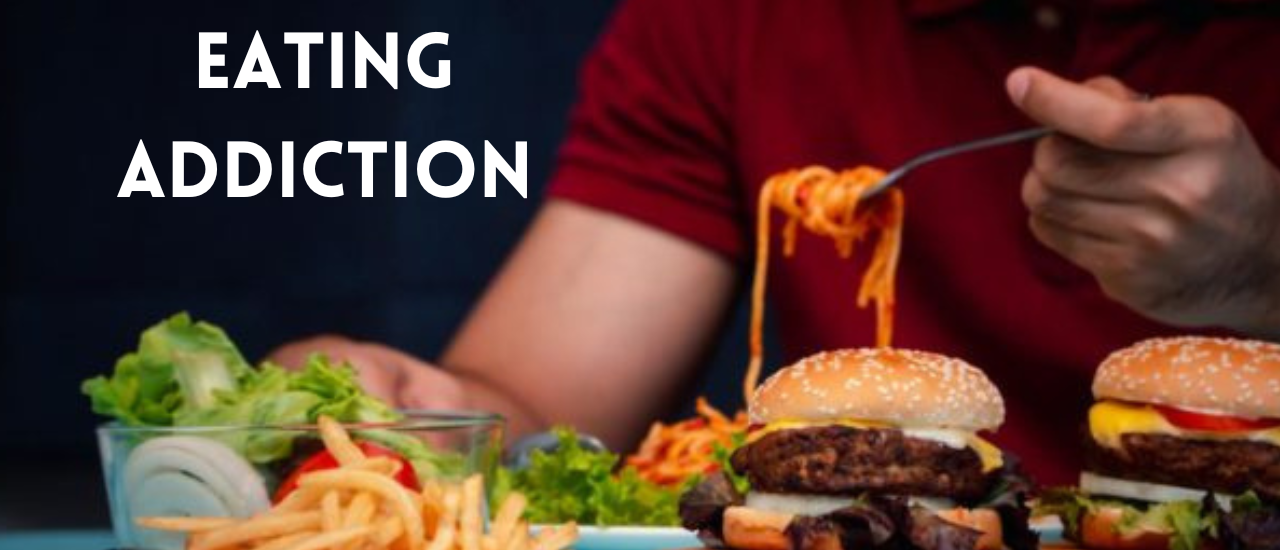


Food is a necessity for human survival, a vital component of our heath, as well as a source of pleasure and delight. Highly appealing meals cause brain chemical changes that result in emotions of pleasure and satisfaction in people who have eating addiction disorders, whether they be men or women. It is a known fact that some people develop food addictions. Eating addiction disorder develops a dependence on the “pleasant” feelings that come from eating particular foods, which frequently keeps them craving food even when they are not hungry. There is a vicious loop created by these actions. When referring to a compulsive or uncontrolled drive to eat food that has nothing to do with hunger, some individuals use the term “food addiction.” This conduct might come about as a result of an emotion like stress, sadness, or rage.
Up to 20-30% of people may be food addicts or engage in eating habits similar to addictions. Those that are obese see an even larger percentage of this. Similar to how someone with a drug use disorder exhibits addiction to a certain substance, food addiction is being addicted to food.
Food addiction is probably the result of a number of causes, including genetic, mental, and interpersonal ones. An addiction can arise for genetic, mental, or social reasons in a man or woman. Hormonal imbalances, disorders in different brain structures, negative effects from the usage of multiple medications, or having family members with this type of addiction disorders are biological reasons causes that may impact the development of this eating addiction disorder.
Some people may experience an addictive-like process after ingesting “highly processed” foods, which are defined as foods that are high in carbohydrates, grossly overweight, sodium, and sweetener. This process is brought on by the activation of reward-processing areas in the brain and the release of “feel-good” chemicals. These foods have the same detrimental effects on the brain as drugs and alcohol. Psychological issues like these may lead someone to turn to food as a coping method to deal with the resulting painful emotions. People who develop a eating addiction may use food to increase good feelings and lessen bad ones. As an illustration, you might consume something special to congratulate yourself for an achievement, but you might also do it because something negative occurred and “you really want it.” Thinking like this is typical form of eating addiction.
Genetics is an important aspect that can contribute to the emergence of a food addiction. There are certain genes that increase a person’s likelihood of developing any addiction, including a eating addiction. A woman’s likelihood of being obese was 40–50% higher than it was for individuals without a history of substance abuse. There may be a connection between substance misuse and food addiction, even if not everyone who is obese has a food addiction.
There are two types of effects. One is short-term effect and the other one is long term effect.
This can result in a variety of physical symptoms, such as the immediate physical consequences of eating addiction disorder, which are well known to anyone who has overdosed on food. These may be extremely unpleasant and may consist of uneasy stomach, heartburn, nausea, vomiting.
This may have a number of negative physical, psychological, and social effects, including heart problems, overweight, low levels of self, unhappiness, and feelings of loneliness. Due to the demand for induced emotions of pleasure, a food addict frequently resumes these harmful actions despite unintended consequences. Obesity and eating addiction have long-term impacts that can be particularly harmful and expensive. They consist of:
Depression is a difficult mood disorder, and people who battle with it frequently turn to a wide range of behaviors in an effort to cope. They sometimes engage in disruptive behavior, such as purging, bingeing, and/or restricting as part of an eating disorder. Feelings of low self-worth are one symptom that both depressed and eating disorder sufferers have that can help either condition develop or persist. Finally, due to their depressive symptoms, people with depression often suffer varied hunger variations, which puts them at risk for developing disordered relationships with food.
Substance abuse and eating disorders are closely related. Similar to other psychological problems, having an eating disorder raises the possibility that a person would try to use drugs or alcohol for self-medication. Patients who self-medicate run a very high risk of becoming dependent or addicted because they get acclimated to the milder or altered symptoms. Alcohol and other depressants, for example, can improve persons with eating disorders by reducing their tension and anxiety related to food.
Meals rich in fat, sugar, or artificial sweeteners may cause your body to undergo chemical changes that enhance your desires for these foods. By buying healthy foods and eliminating all addictive foods from your home, you can lessen your food cravings.
It could be unrealistic to stop eating the meals you are addicted to. By limiting how much of those things you can eat in this situation, you can lessen your food addictions. You should divide your meal into small portions.
If you are getting the nutrients you need from your meals, you will be less likely to crave particular foods or groups of foods. Eating a nutritious breakfast can help you start the day off well and can also help you keep your food cravings under control throughout the day.
If you make sure to keep wholesome foods, it will be much simpler for you to curb your appetite. You can consume something that will be good for your body rather than giving in to your addiction. When cravings strike, try to keep foods like nuts, fruit, and veggies nearby.
Facing Coffee Bean Allergy: All Details About It
What Is Yeast Infection Its 6 Major Symptoms
Egg Intolerance: Know What Foods You Need To Avoid
Gluten Intolerance Symptoms And All You Need To Know About The Gluten Free Foods